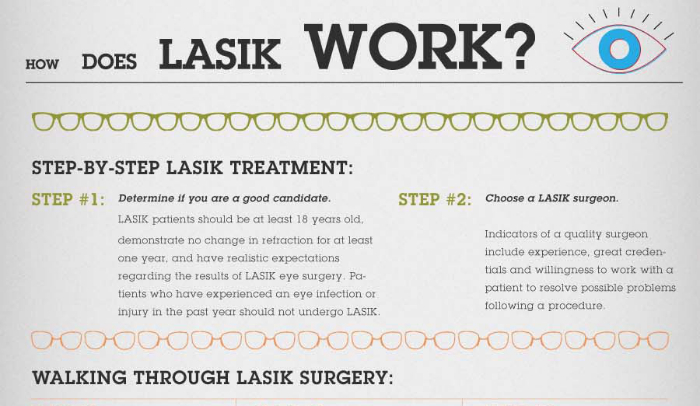Contemplating SMILE Surgical Treatment? Examine Important Facets And Insights That Will Assist You In Reaching A Thoughtful Decision Worrying Your Visual Future
Contemplating SMILE Surgical Treatment? Examine Important Facets And Insights That Will Assist You In Reaching A Thoughtful Decision Worrying Your Visual Future
Blog Article
Written By-Frederiksen Bilde
If you're pondering SMILE eye surgery, consider this: are you prepared to welcome possible visual liberty, or does the idea of any type of risks make you think twice? Your choice will rest on a mindful equilibrium of evaluating the benefits against the unpredictabilities. It's critical to dig much deeper into the subtleties of SMILE surgical treatment to make an informed selection that straightens with your visual objectives.
Recognizing SMILE Eye Surgery
When taking into consideration SMILE Eye Surgical treatment, it's important to understand the procedure and its benefits. SMILE, which means Small Incision Lenticule Extraction, is a minimally invasive laser eye surgery that fixes typical vision problems like nearsightedness (nearsightedness).
During the treatment, your eye specialist will utilize a femtosecond laser to produce a small incision in your cornea. With this laceration, a small disc of cells called a lenticule is gotten rid of, improving the cornea and remedying your vision.
Among Custom Cataract Surgery of SMILE Eye Surgery is its quick healing time. Several individuals experience improved vision within a day or more after the procedure, with marginal discomfort.
Furthermore, SMILE is recognized for its high success rate in giving lasting vision improvement. Unlike LASIK, SMILE does not require the creation of a flap in the cornea, minimizing the threat of problems and enabling a much more secure corneal framework post-surgery.
Comprehending the procedure and its benefits is vital when taking into consideration SMILE Eye Surgery for vision correction.
Pros and Cons of SMILE
Taking Into Consideration SMILE Eye Surgery for vision correction comes with various benefits and potential downsides.
Among the primary pros of SMILE is its minimally intrusive nature, as it involves a small incision and commonly results in quick healing times. The procedure is additionally understood for causing very little discomfort and dry eye symptoms post-surgery compared to various other vision adjustment approaches. Furthermore, SMILE has actually been revealed to give outstanding aesthetic end results, with lots of clients attaining 20/20 vision or better.
On the other hand, a possible con of SMILE is that it may not appropriate for individuals with severe refractive errors, as the therapy variety is somewhat restricted contrasted to LASIK. Another factor to consider is that the learning curve for doctors implementing SMILE can impact the accessibility of knowledgeable service providers in particular locations.
It's important to consider these benefits and drawbacks thoroughly when determining if SMILE is the ideal selection for your vision improvement needs.
Determining Eligibility for SMILE
To figure out if you're eligible for SMILE eye surgery, your optometrist will certainly perform a complete analysis of your eye health and wellness and vision demands. During this assessment, elements such as the stability of your vision prescription, the thickness of your cornea, and the total wellness of your eyes will certainly be examined.
Normally, After Cataract Surgery When Can You Drive for SMILE more than 22 years old, have a secure vision prescription for at the very least a year, and have healthy and balanced corneas without problems like keratoconus.
Your optometrist will additionally consider your total eye health, any existing eye conditions, and your way of living requires to figure out if SMILE is the best choice for you. It's important to communicate any kind of details visual requirements or issues you may have during this analysis to ensure that the treatment straightens with your assumptions.
If you aren't eligible for SMILE, your ophthalmologist might advise alternate vision correction choices that far better match your private needs and eye health status.
Conclusion
Inevitably, deciding whether SMILE eye surgical treatment is right for you requires careful factor to consider of your private eye health and wellness and visual demands. Seek advice from your eye doctor to identify your qualification for the procedure and consider the potential advantages and drawbacks. Keep in mind to connect any type of problems or concerns you might have during the assessment procedure to make an enlightened decision concerning your vision adjustment choices.
